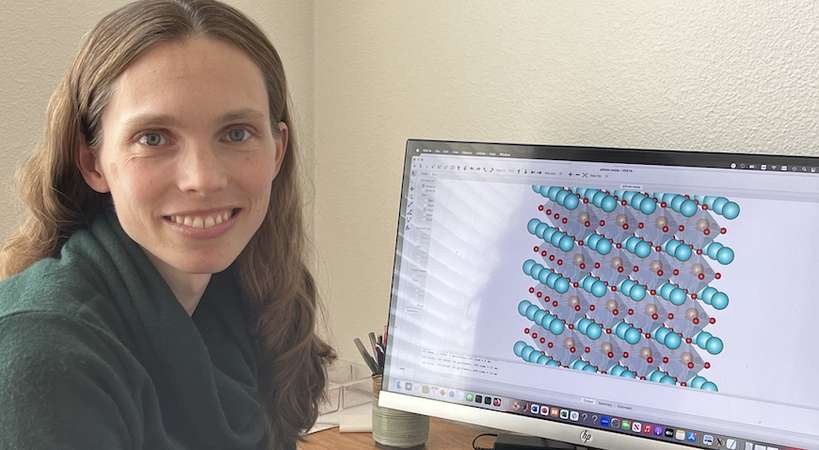
Computer technology has exploded in recent years and is only going to keep growing, with ever more use of artificial intelligence and connected devices that communicate, or the Internet of Things.
A UC Merced researcher recently won a grant aimed at helping to learn how to reduce the amount of power required to do all that work. And she will work with colleagues at two other UC campuses.
Elizabeth Nowadnick, a professor in the Department of Materials Science and Engineering, was awarded a Multicampus Research Programs and Initiatives (MRPI) grant totaling $299,629 from the University of California Office of the President (UCOP). The grants were announced Jan. 9.
Working with researchers at UCs Berkeley and Davis, Nowadnick will explore new classes of materials for enabling more energy-efficient computing.
They will focus on ferroelectric oxide materials, which are readily available and already used in many electronics, Nowadnick said.
"The ones that are already in use are in bulk form (think of it as a chunk of material) or as a thin film of the material grown on a substrate (attached to another material)," she said. "What is new here is taking the same ferroelectrics that are already used in applications but looking at them in freestanding membrane form, which may enable new properties and applications. The membranes are not currently used in applications because they are such a new concept."
Research from the Berkeley group involved in the project has shown that it takes less power to operate the ferroelectric membranes compared to ferroelectrics in bulk form.
"In this project, we are seeking to understand why this is and also explore how to reduce the power even further," Nowadnick said.
While the UC Merced group focuses on computational materials science - simulating materials using computers - the Berkeley and Davis groups are synthesizing and characterizing the ferroelectric membrane materials in the lab, she said.
"We will be working together to better understand the ferroelectric membrane materials but taking different (complementary) approaches. For example, based on my calculations, I may predict that making some change to the ferroelectric membrane can reduce the amount of energy it needs to operate," Nowadnick said. "Then the Berkeley and Davis researchers can grow the material in the lab and measure it to test if the prediction is correct. On the other hand, the Berkeley and Davis researchers may make an exciting experimental observation about a ferroelectric membrane, and then they may ask my group to perform some calculations on that system in order to help provide understanding of the result."
Combining the different approaches - experimental synthesis and characterization with computer-based modeling - will provide a powerful suite of tools and approaches to bring to bear on the problem, she said.
In her grant application, Nowadnick outlined next steps once the project is completed.
"The expected outcome will be a proof of concept of ferroelectric-oxide membrane functionality," she wrote, "which we will further develop by applying for external funding opportunities."




 Public Information Officer
Public Information Officer

